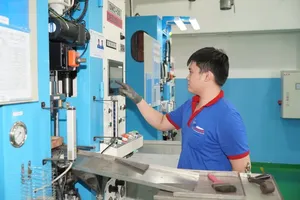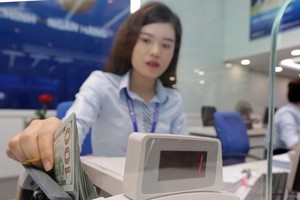
Statistics from the State Bank of Vietnam (SBV) reveal that of the more than 200 million individual bank accounts currently open nationwide, only 113 million have undergone biometric matching.
For corporate accounts, 711,000 (representing 55 percent of all corporate accounts) have had the biometric data of their legal representatives matched. Starting this July 1, corporate accounts will also require biometric authentication for transactions.
This leaves over 86 million individual accounts with unconfirmed identities. This pool includes a large number of “dormant” accounts with no transaction history for extended periods, as well as “ghost accounts” established with fraudulent identities specifically for perpetrating financial scams.
To purge the system, the SBV plans for commercial banks to begin deleting these inactive accounts starting September 1, 2025. In practice, several major banks, including BIDV, Vietcombank, Agribank, Techcombank, and VPBank, have already been automatically locking or closing accounts with zero balances that have been inactive for one to three years.
Many banks are also leveraging technology to enhance customer protection. Recently, MSB rolled out a “fraudulent account warning” feature directly within its MSB mBank application, which automatically alerts users if they attempt to transfer funds to an account flagged by authorities as potentially fraudulent.
For high-risk accounts, MSB will block the transaction entirely; for those merely under suspicion, customers receive a warning and can make the final decision. Meanwhile, MB Bank has deployed Artificial Intelligence (AI) for real-time transaction monitoring, enabling its system to detect anomalies in time, location, value, and device to alert customers.
Similarly, in just two months, BIDV’s feature that warns users before transferring to a suspicious account has helped over 40,000 customers halt their transactions, preventing potential losses exceeding VND160 billion (approximately US$6.3 million).
According to Director Pham Anh Tuan of the Payment Department at the SBV, deleting “dormant” accounts not only cleanses the data but also fortifies customer trust, especially as high-tech crime grows more sophisticated.
“The SBV is building a centralized data warehouse of accounts, cards, and e-wallets with signs of fraudulent activity, in coordination with credit institutions. This database already contains over 350,000 accounts suspected of fraud and plays a crucial role in warning about and preventing suspicious transactions”, stated Director Pham Anh Tuan.
Despite the banking sector’s extensive cleanup measures, sophisticated fraud schemes continue to evolve. Recently, the police in Thai Binh Province dismantled a VND1,000-billion gambling ring and discovered that the perpetrators had used AI to create fake biometric videos to bypass bank security – a tactic recorded for the first time in Vietnam.
Furthermore, police officials have raised alarms about an emerging form of fraud where criminals are “farming” individuals by holding them captive to rent out their faces for biometric authentication.
This scheme allows the masterminds to conduct fraudulent transactions remotely, with the “face-for-rent” individual only appearing when physical authentication is required. This poses a significant challenge to current security measures, and the fact that these criminal organizations often operate from outside Vietnam’s borders complicates timely detection and enforcement.

Currently, the Ministry of Public Security is proposing to criminalize the act of renting out accounts, lending identities, or otherwise abetting fraud. Concurrently, the SBV is drafting a decree to replace Decree No. 88/2019, which governs administrative penalties in the monetary and banking sectors. The new draft proposes increasing fines by four to five times the current levels, with a maximum penalty of VND200 million ($7,800) for renting or lending an account.
Deputy Director Nguyen Duc Lenh of SBV Region 2 stated that the enhanced sanctions are expected to serve as a sufficient deterrent against abetting financial crime.
Meanwhile, SBV Deputy Governor Pham Tien Dung emphasized that collaboration between the SBV, the Ministry of Public Security, and other agencies has fostered a more complete digital payment ecosystem. However, he stressed the ongoing need for public education campaigns to inform citizens about criminal tactics, empowering them with the knowledge to transact safely in the digital space.
Dr. Huynh Trung Minh, an expert in finance and banking, proposed that as cybercrime becomes increasingly sophisticated, more comprehensive solutions are required to ensure the security of banking transactions.
The fight against financial fraud is no longer the sole responsibility of banks or police agencies; it demands close coordination between the state, financial institutions, technology companies, and the public. While banks must enhance their monitoring to detect and prevent suspicious transactions, and authorities must track and prosecute fraud, citizens themselves must elevate their vigilance and absolutely refrain from lending or renting out their accounts for any reason.
























